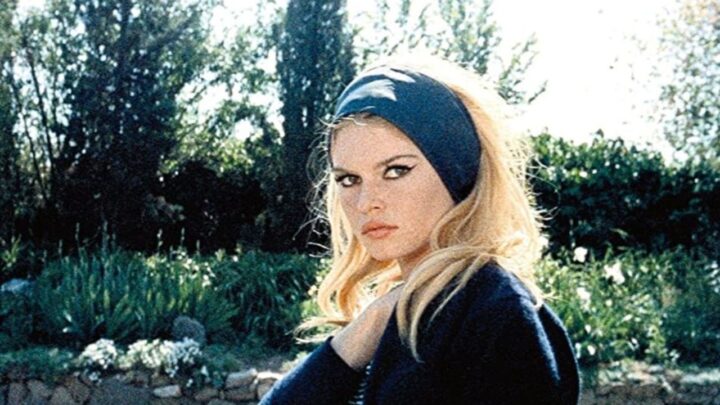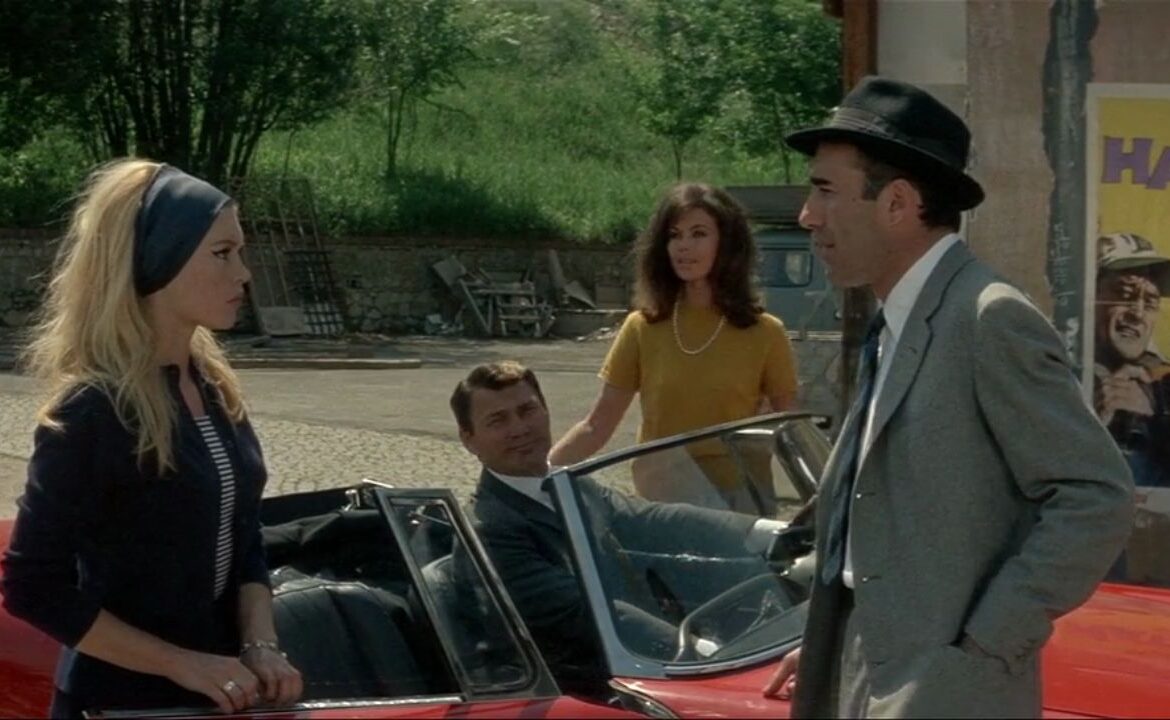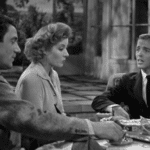After Jean-Luc Godard’s ‘Breathless’ left me anything but, I’ve been reticent to return to one of his films; however, I found myself in my attempts to catch up on Sight and Sound blind spots watching ‘Contempt’, a film I recognized as Godard’s rather quickly. Regretfully Contempt doubled down on Godard’s inabilities, and it did so only with an increasingly distasteful amount of sexism, that I regretfully see is often so often associated with this era of films. (8 1/2 by Federico Fellini came out this same year and is just as guilty of this.)
‘Contempt’ begins with writer Paul Javal (Michel Piccoli) and his wife Camille Javal (Brigitte Bardot) naked in bed, where only the latter is shown as such as this is the state of being for Bardot in most of this film. Together they are talking and share an intimate moment of conversation as they talk together about his wife’s body. Quickly thereafter we follow the pair to an old film studio as Javal meets an American producer Jeremy Prokosch (Jack Palance) who is working to adapt the Odyssey into a film of epic proportions. However, Prokosch is unhappy with director Fritz Lang – played by himself no less – and his work, and thus Javal is brought in for rewrites. After watching the film thus far, Prokosch, who is giddy with glee at nudity in the reels so far but nothing else, invites Javal’s wife to ride with him to his villa. Javal decides to take a taxi leaving his wife to ride with Prokosch alone, and when Javal does arrive, thirty minutes late full of excuses, his wife is having none of it and seems to be flustered. Javal goes to the restroom, flirting at Prokosch’s assistant and translator Francesca Vanini (Giorgia Moll), and is potentially caught by his wife as he rubs his hand on her back and rear. What follows is a gradual escalation of a disagreement between the couple, as Javal attempts to salvage his relationship, while also considering whether or not to accept the role as screenwriter.
Godard’s ‘Contempt’ appears to interrogate the relationship between Javal and his wife Camille, as the largest portion of the film is devoted to an argument in their house, which stretches through the entire second act. However the film has little to say about the actual relationship itself, as Javal offers reasons he contemplates his wife is upset, while she offers none, and given the introductory scene we have little reason to suspect any failing in their relationship prior to this day. Though Camille does offer at one point perhaps the best phrase in the film, something akin to “Can’t I just change my mind”, this is a rather flimsy setup for all that follows.
In a through line that is supposedly tied to the crux of the couple’s argument, or so we think, we have also the creation of the film based on The Oddyssey going on concurrently. Godard seems to think his film is doing an incredible job of serving as a parallel to the Oddysey, especially as it discusses whether Odssyeus loved his wife or if his wife loved Odysseus; however, no part of this film feels in anyway tied to the Homeric story aside from the occasional busts we see loom large on screen. As it goes we get very little full understanding of this film they are making, and if it has any actual weight on the plot. ‘Contempt’ is itself adapted from Il disprezzo by Alberto Moravia, and though the novel ties its main story as well to the Odyssey, one wonders if Godard’s changes – approved he says by the director – didn’t gut the effectiveness of this further.

Brigitte Bardot in ‘Contempt’
What is perhaps the greater threat to the couple’s relationship, or so we are led to believe, is the producer himself Palance. Palance comes across as an ‘Ugly American’ stereotype in every sense of the word – probably earned even at that time so no complaints there – yet, somehow he must have pull on both Javal and Camille for their actions to make sense in the film? Yet as boorish as Palance is shown to be as a character, even Javal – no angel himself – has little reason to consort with him, and actually makes a choice that one would imagine – if we knew the faults of the marriage at all – would save the relationship. However his actions, and the even more strangely motivations of Camille, draw them to Palance, resulting in an incredibly confounding unsatisfying final scene.
Godard’s cinematography is again the only positive note, and even then less for its execution and more for its originality, as that’s a major component of what set the French new wave apart. Otherwise this film ultimately seems like a poor excuse for Bardot to be laid bear, which is credited often to American producers want and not Godard’s (a quote that may exist but I cannot find); however, Godard’s answer seems to be stay the course, spiting no one, and doubling down with the sexism of his main characters. To what end? One wonders…
Alas unlike The Oddyssey, which presents many trials for the characters along the way, along with a real sense of struggle and loss, ‘Contempt’ shows little and provides even less for our effort and time. We are not treated to a siren’s song, but are instead wishing perhaps, like Polyphemus, that we could unsee much of what was before us. If we are left with ‘Contempt’ in anyway, I’m afraid it’s contempt for this film and that is all.









